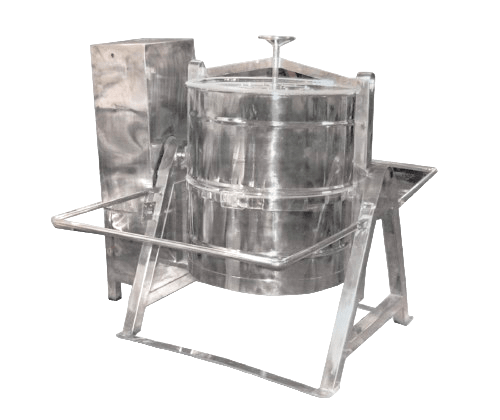Advantages of Incorporating a Drum Blender in Pharmaceutical Manufacturing
Chemiplant Engineering Company Drum Blenders are industrial mixing devices used to blend dry powders and granules uniformly. Their application extends across various industries, including pharmaceuticals, food processing, chemicals, minerals and mining, and cosmetics.
Here are the key applications of drum blenders:
- Pharmaceutical Industry: Drum blenders are extensively used in the pharmaceutical industry for blending dry powders and granules used in the production of tablets, capsules, and other pharmaceutical products.
- Food Processing: In the food processing industry, drum blenders are used for blending a wide range of ingredients such as flour, spices, sugar, and additives. Drum blenders ensure thorough mixing, essential for achieving consistent product quality and flavor.
- Chemical Industry: Drum blenders play a crucial role in the chemical industry for mixing dry chemicals and compounds. They are used in the production of various chemical products, including detergents, fertilizers, and industrial chemicals, ensuring uniform blending and consistent product quality.
- Minerals and Mining: Drum blenders are used in the minerals and mining industry for blending powders and granules used in the production of minerals and mining products. They are particularly useful for blending different grades of minerals to achieve the desired product specifications.
- Cosmetics Industry: In the cosmetics industry, drum blenders are used for blending cosmetic powders, pigments, and other ingredients used in the production of cosmetics. Drum blenders ensure uniform blending, which is essential for achieving consistent product quality and appearance
The advantages of incorporating a drum blender into pharmaceutical manufacturing processes
- Convenient Blending Containers:
Drum blenders serve as highly convenient blending containers due to their design. They allow for easy loading and unloading of materials, minimizing the need for manual handling. This feature reduces the risk of contamination and ensures product safety, a critical factor in pharmaceutical manufacturing.
- Flexible Installation Options:
Drum blenders can be installed as free-standing units or integrated into existing processing lines through wall installations. This flexibility in installation allows manufacturers to adapt the blending equipment to suit their specific production needs and facility layout.
- Ease of Handling:
Drum blenders are designed for easy handling, requiring minimal manual intervention. This ease of handling streamlines the blending process, reducing the risk of operator errors and improving overall efficiency.
- Enhanced Blending Performance:
Drum blenders offer a good blending performance, ensuring thorough mixing of powders and granules. The tumbling action of the drum facilitates efficient blending, resulting in a homogeneous blend with consistent quality.
- Large Capacity Range:
Drum blenders are available in a wide range of capacities, with some models offering a maximum capacity of up to 750 liters. This flexibility in capacity allows manufacturers to choose a drum blender that meets their production requirements, whether they need to blend small or large batches of materials.
- Homogeneous Mixing:
Drum blenders ensure uniform blending of ingredients, leading to consistent product quality. The gentle tumbling action of the drum prevents segregation of particles, ensuring a homogeneous blend.
- Reduced Processing Time:
Drum blenders are designed to efficiently blend large batches of materials, reducing processing time compared to manual or less efficient blending methods. This results in increased production output and cost savings.
- Cost-Effective:
Despite their advanced blending capabilities, drum blenders are cost-effective compared to other high-end blending equipment. This makes them an attractive option for pharmaceutical manufacturers looking to improve their blending processes without breaking the bank.
Conclusion
In conclusion, incorporating a drum blender into pharmaceutical manufacturing operations offers numerous advantages, including versatility in applications, convenient blending containers, economical solutions, flexible installation options, ease of handling, enhanced blending performance, and a large capacity range. Pharmaceutical manufacturers can benefit significantly from the efficiency and reliability that drum blenders bring to their blending processes.


